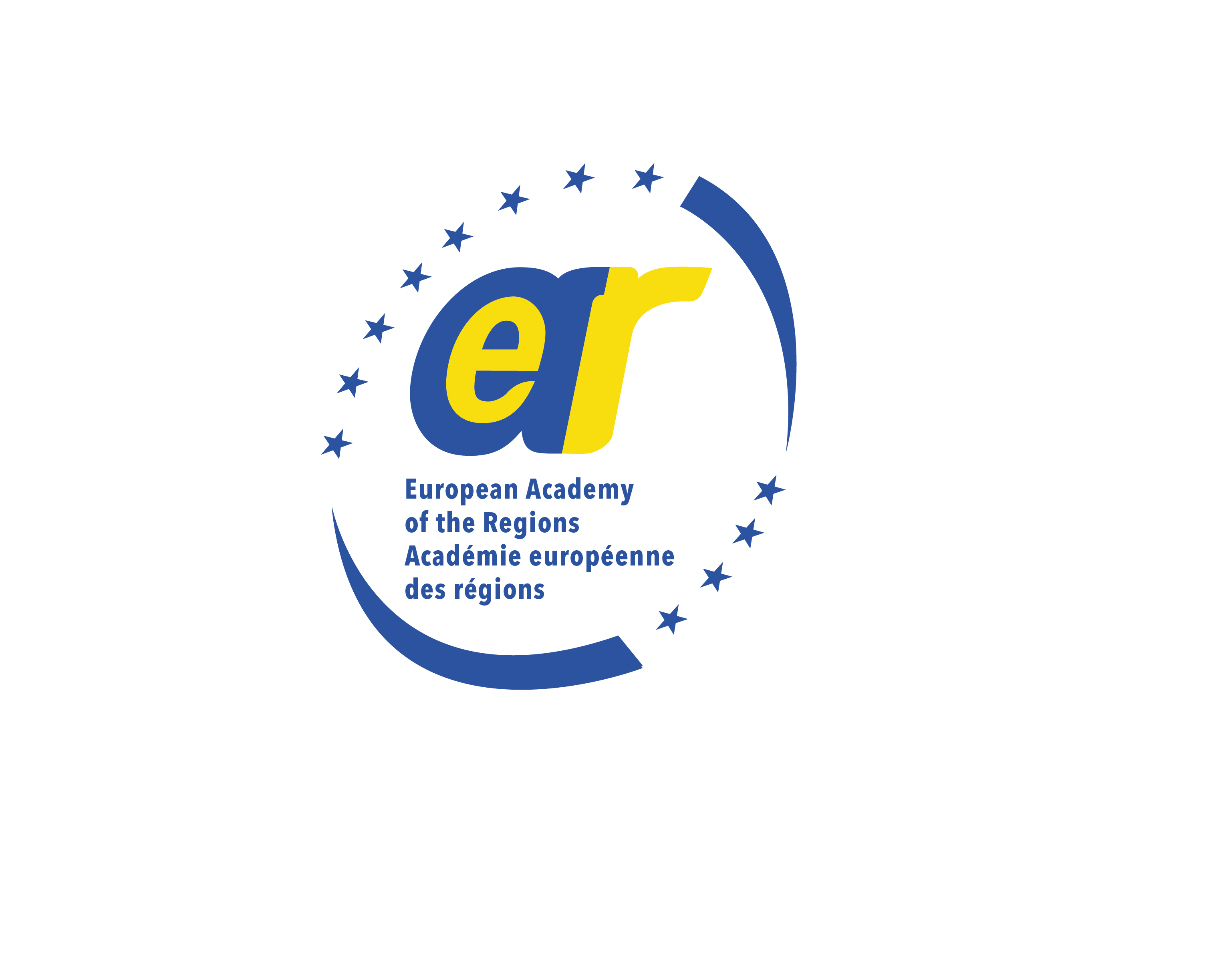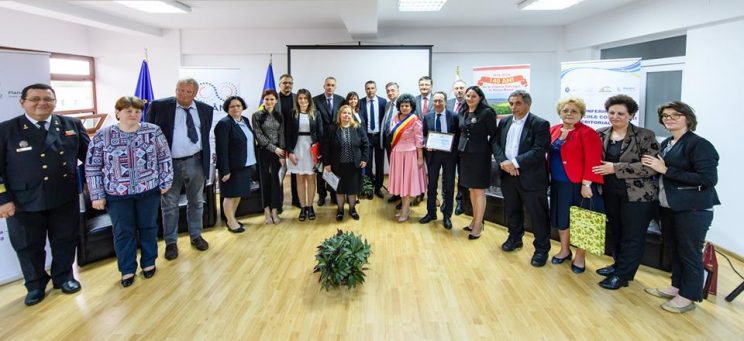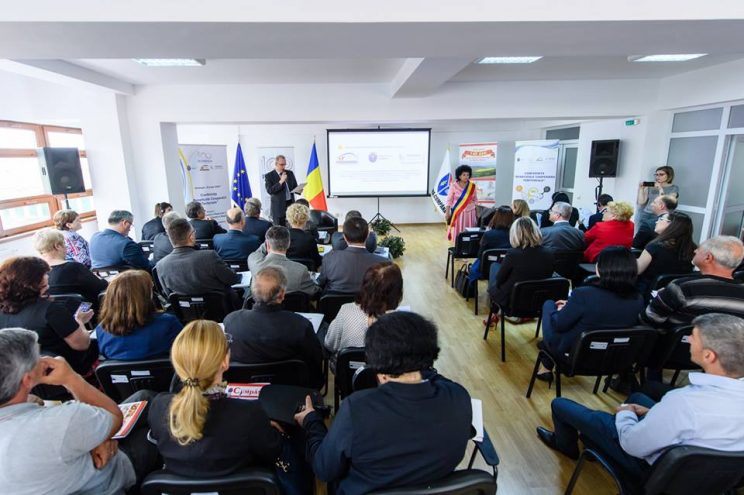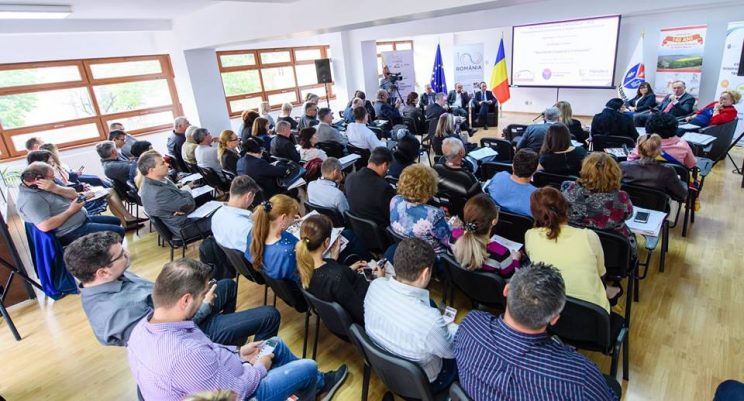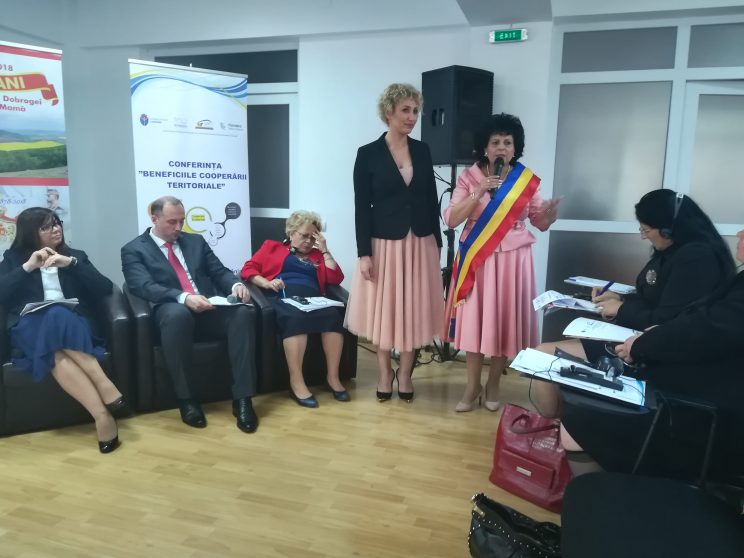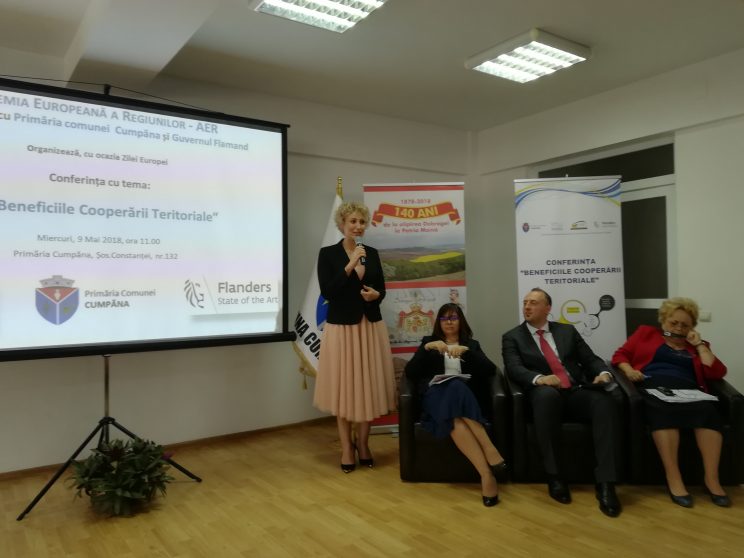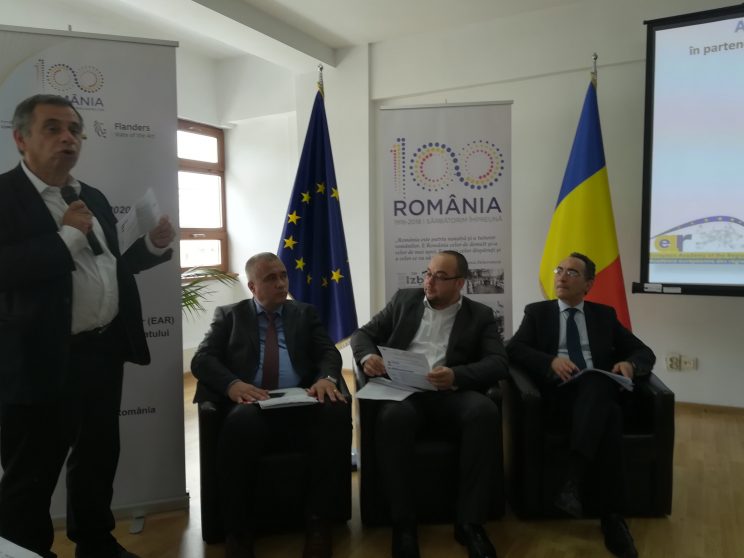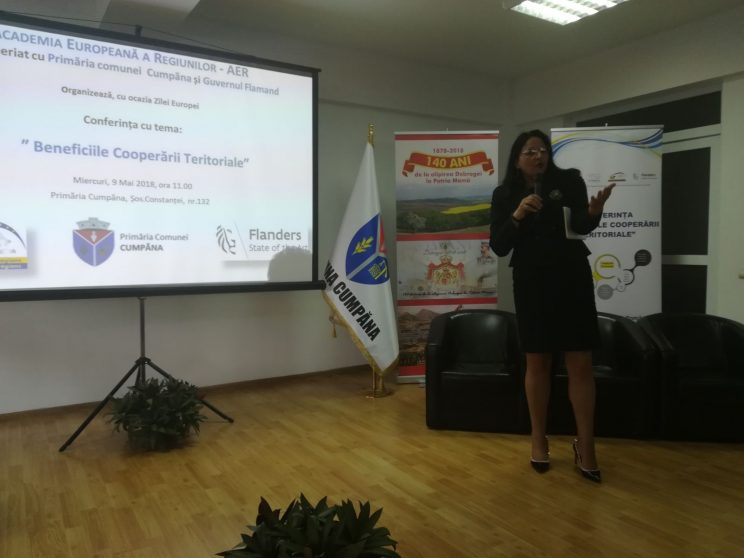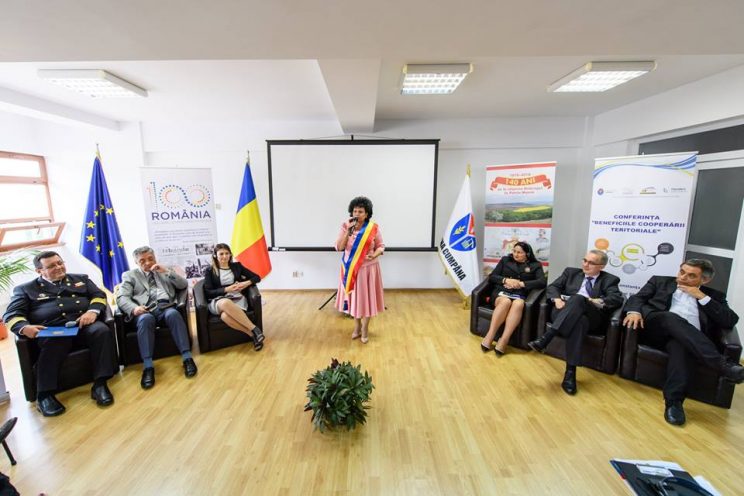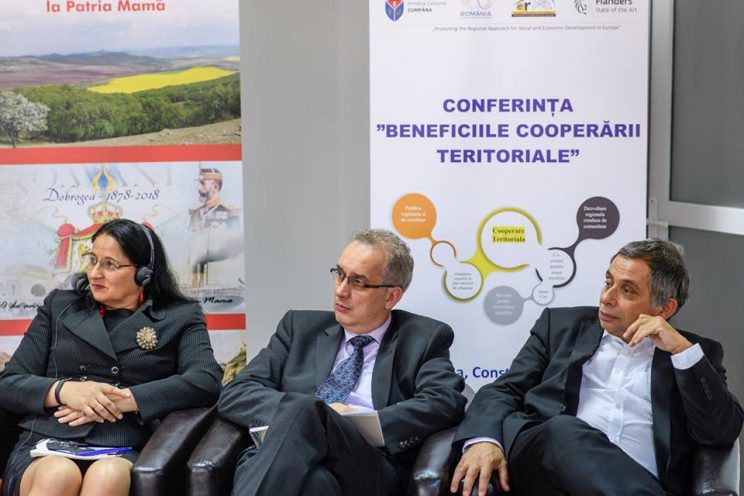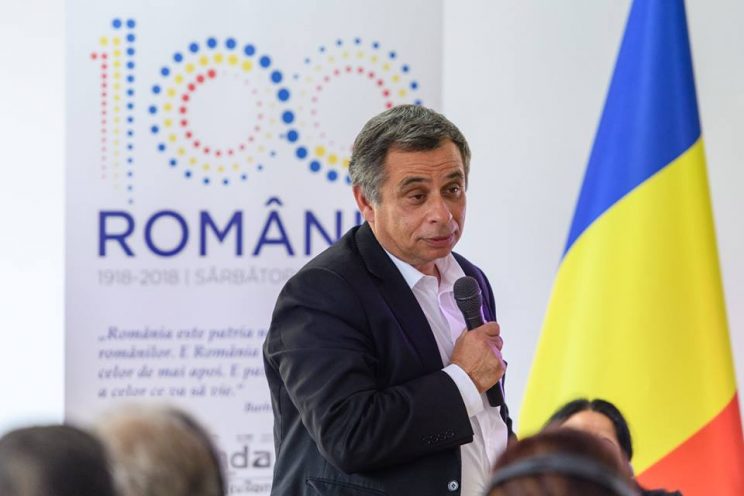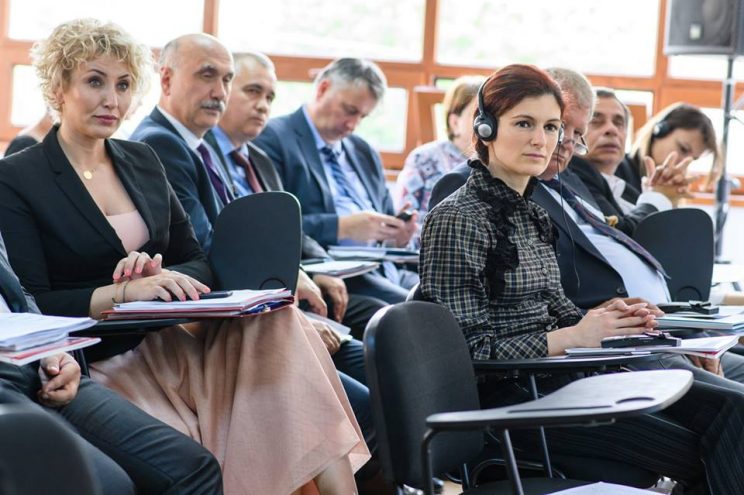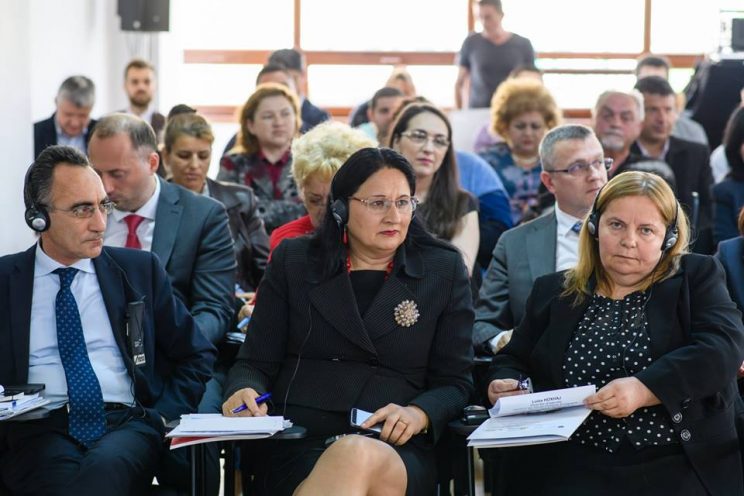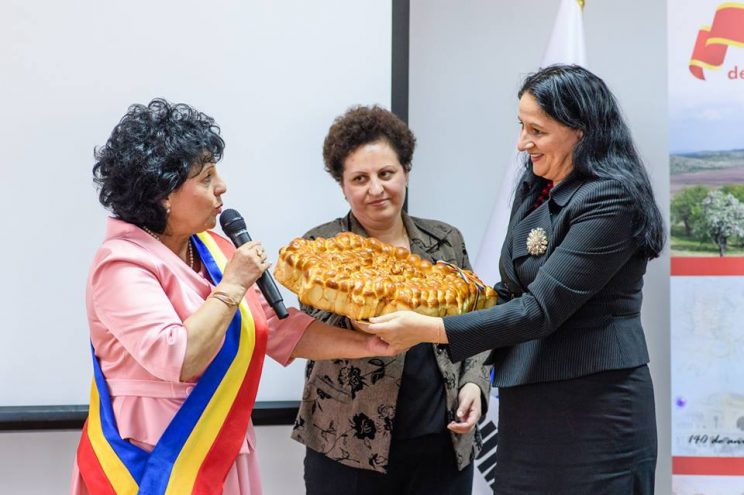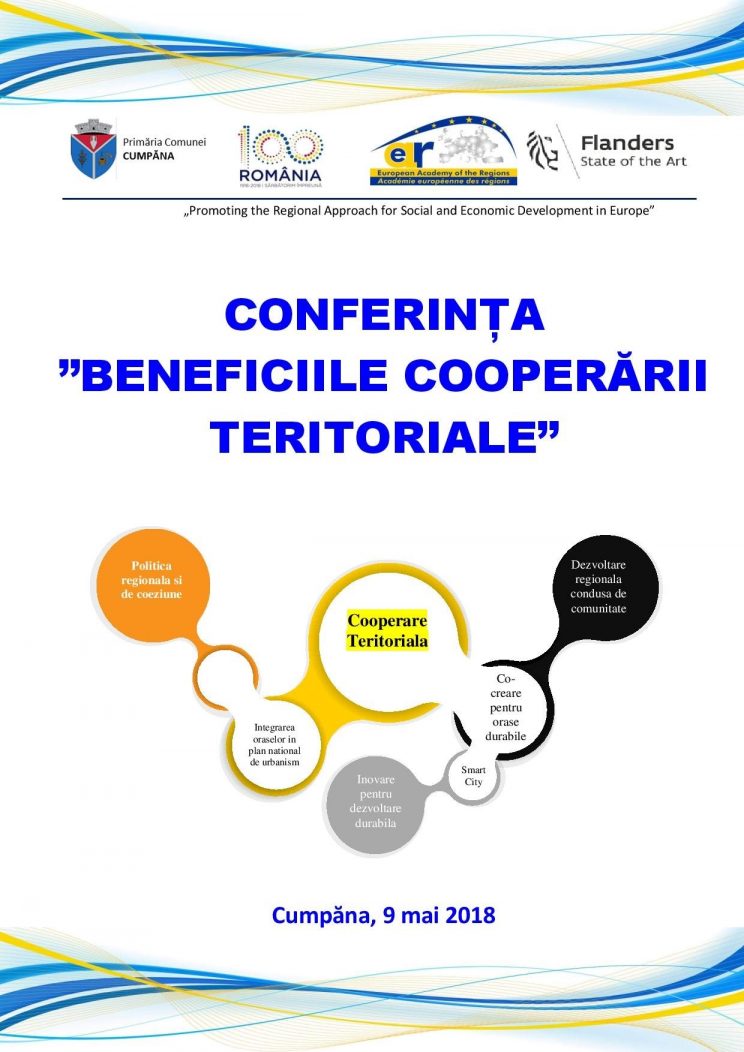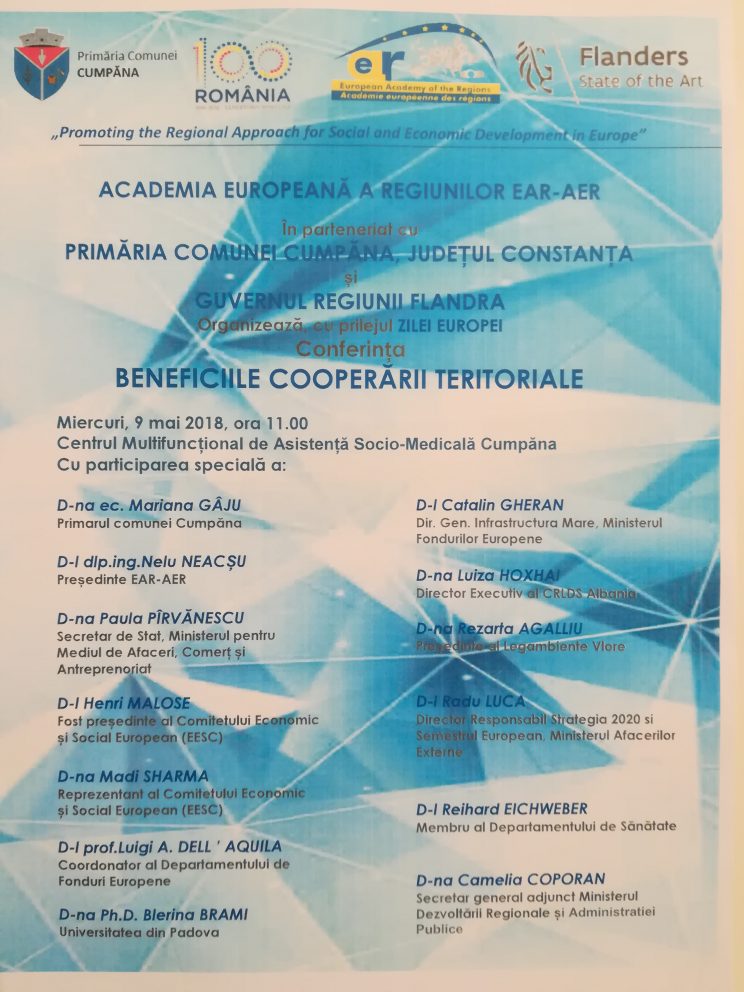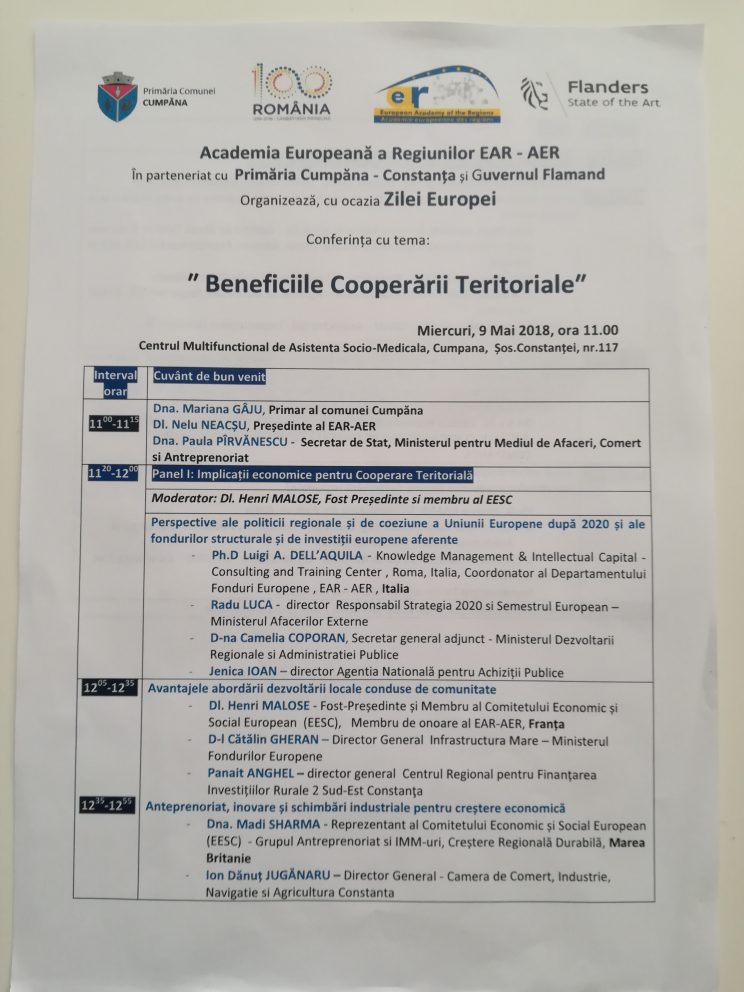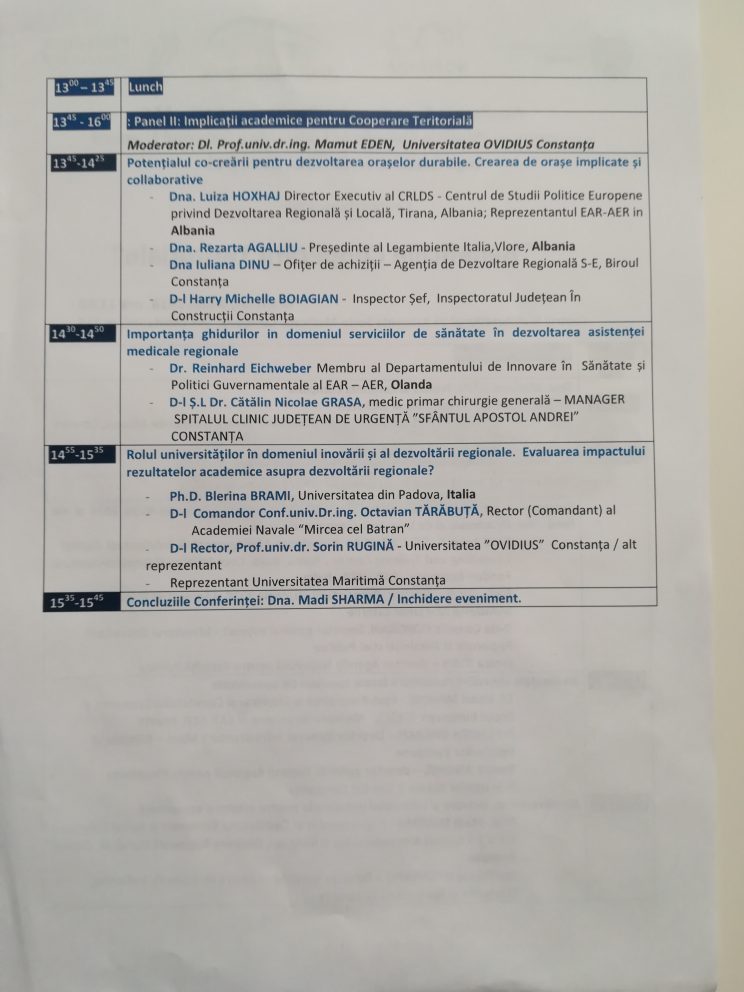On the 9 May 2018, EAR-AER with the support of Cumpăna Hall and Government of Flanders organised on the occasion of Europe Day the conference “Benefits of Territorial Cooperation”
The conference took place at the Multifunctional Health Care Centre, Cumpăna, 117 Constanței Street, in the presence of a public of 80 attendees, several prominent figures from the Romanian political scenery; who have been able to listen to 20 expert speakers from across Europe, shared their knowledge, insights and case studies on a wide spectrum of issues that make up territorial cooperation. different speakers, treating a vast pallet of subjects.
The conference was opened by Mayor Mrs Mariana Gaju,clearly stated that “All stakeholders, especially the local ones are a priority for effective collaboration”.
EAR-AER president Nelu Neacşu insisted in his opening speech in the presence of 8 speakers from 7 different countries on the European continent thanks to the efforts of EAR-AER and in the fact that several of the speakers were from universities, enabling a closer collaboration between the host universities and universities in Europe. He thanked to the Government of Flanders for the support it gives since 3 years to the EAR-AER enabling this organisation to come for two times in the last 3 years in Romania.
Mrs. Paula PÎRVĂNESCU – State Secretary, Ministry for the Business, Commerce and Entrepreneurship Environment congratulate the organisers and presented the priorities of the ministry and their future vision in order that the SMEs will have a better access to finance their projects.
EAR-AER honorary member and former EESC president Henri Malosse gave then a remarkable plea for decentralisation. He started from medieval history, during which period local communities were the main actors. Centralisation came with the kings, ruling as a representative of God and later with industrialisation. In the post-industrial digital age in which we live now, too much centralisation is not accepted any longer. The best results on development increase in Europe took place in recent years in small countries such as Malta, Estonia and Slovenia, where governments rule over small communities and are stimulated and controlled by them. Decisions to spend the national budget are not taken top-down in these countries. Cities and regions should have elected governments and develop a strong civil society in order to keep in touch with the needs and expectations of the citizens. Together they are able to detect what Henri Malosse calls “the golden nuggets”, strongly involved individuals coming from all levels of society,-academic, entrepreneurial, cultural, medical, legal world- able and willing to contribute strongly to the development of their region. He pleads also for lifelong learning and to create possibilities for this on a local level. He insists therefore on the role of the European Academy of the Regions, that as in the first place a role to stimulate regions in its creativity and its continuous search for quality and innovation by producing examples from all over Europe. It is Mr. Malosse’s vision that the EU should step down from its top down approach imposing rules and using taxes for purposes far from the average citizen. He pleads for a political approach that leaves more space to a bottom-up approach, involving cities and regions and the decision making in a structured way.
Mrs. Madi Sharma, representative of the EESDC Employers Group, insisted on the fact that entrepreneurs are the backbone of society but do not receive the necessary respect for their contribution to employment and growth. She makes though a distinction between corporate and entrepreneurs indicating that the latter are not selfish. The value corporate social responsibility and tend to create an inclusive working environment, to collaborate aiming the regeneration of communities by creating sustainable growth. Mady Sharma: “We live in the era of “co” –co-creation, co-llaboration, co-working, co-lateral-. The era of the boss-patron and the employees who have to execute is finally gone. No manager is still able to master all the necessary competences. We all have to count on the team, when we develop and assignment or project. But that includes also that the recognition and profit has to be shared.” Finally Mrs. Sharma pointed out at the multiple presence of women entrepreneurs in the sustainable growth ecosystem and o numerous amount of jobs they created in that context.
Prof. Luigi A. Dell’Aquila, EAR-AER board member and head of a consulting and training center in Rome, pleaded for the maintenance of cohesion and other structural funds of the EU in order to assist regions and cities to continue to develop and to catch up with the rest of Europe. Capacity building for him remains important especially when it comes to innovation, environmental transition and the reinforcement of the fragile territories inside the EU. He invites the EU therefore to include thematic sessions in that sense in their search for common goals for the budget after 2020.
Mrs. Rezarta Agalliu, president of the organisation Legambiente Vlorë, Albania, started with a nice and applicable presentation of the realisations in a touristic context of her organisation for the benefit of the South region in Albania.
Her fellow countrywomen, Mrs. Luiza Hoxhaj, representative of EAR-AER in Albania and executive director at the Albanian Centre for European Policy Studies on regional and local development insisted the possibilities given by the European context to collaboration between social society organisations of different countries, members and future members of the EU. In this regard she insisted upon the existence of the Western Balkan countries and their willingness to improve their social and economic situation in order to prepare themselves for EU membership. She saw a role for the EAR-AER Academy in this process as a stimulator and an inspirator.
Dr. Reinhard Eichweber, member of the EAR-AER health care department, insisted then on a process for setting up guidelines in the various medical processes addressing to all actors concerned in the treatment of a pathology. This way of standardisation in a treatment makes treatments more transparent and reduces the hospitalisation period and also the insurance cost and thus the medical cost burden a society contributes to.
Professor Blerina Brami, researcher at the “Giorgio Lago” Regional Studies Centre of the University of Padova, Italy addressed then the role universities have to play in the European social and economic context in the 21stcentury. She insisted on an active role, emphasising on applied research improving and renovating constantly the competitiveness of our European economy enabling it to maintain the specific standard of living and way of life all Europeans foster. She emphasised on technology transfer possibilities put also on entrepreneurial universities, creating the necessary start-ups inspired by their technology and creating in this way also employment. In this way universities find their way to the real world. She pleaded for a triple helix approach, regrouping regional and local authorities in a dialogue with the local and regional employers and entrepreneurs and with the regional universities and technical colleges in order to address the specific social, cultural, economic and medical needs of a region or a city and to find specific solutions in this challenging world.
At the end of this day Mrs. Madi Sharma was invited to bundle the conference’s conclusions.
The regional priorities were:
- Addressing youth employment
- Investment and R&D
- Reduction of carbon emission and an increased use of renewables
- Education , including better use of University expertise
- Poverty eradication for those most at risk
- Healthcare
All these elements could be better performed through regional cooperation and the sharing of expertise. Identifying a “common space”, the resources, and allowing innovative solutions were essential to enhancing collaboration.
Collaboration between and across territories can be defined in multiple ways, from local through national and even global collaboration. Regions are in effect collections of urban and rural centres where citizens, businesses, workers, NGOs, educational institutions and all dimensions of society need to be included. Collaboration across regions involves sharing and acquiring knowledge in order to exchange ideas and create an intelligent ( applied knowledge) society to work together for sustainability, economically, socially, culturally and environmentally.
Such sustainable growth – . means an investment in People and Planet , through balanced productivity and equitable profits which are gained without exploitation . Vested interests must be more transparent and a common ground found , including compromise, whereby partners ensure growth means as many as possible benefit, with serious considerations for future generations. Furthermore such parameters should be integrated into politics and policies which need to be more transparent and consider local action plans and community needs.
The creation of an ecosystem of shareholders businesses, trade unions, universities, NGOs and anyone engaged at local level growth must be engaged in discussions on territorial collaboration to ensure everyone benefits. This empowers a bottom up approach, instead of a sole top down policy inflicted one. When highlighting on sustainable development, it is important to stay creative permanently and to create new products and new businesses that tackle present and future needs with new approaches – such ideas come from people in communities, at the grass roots, and not politicians.
We live in the era of “co”- co-operation, co-llaboration, co-mmunication , co-llateral-. Collateral is our human capital and society needs think much more about the collaboration of human talent and empowering people to act , engage and implement. Working as effective teams is much more efficient than working alone.
A call for a more active role of businesses in conjunction with universities and technical colleges to identify solutions. This is a decade old recommendation which is still failing in implementation at the detriment to society, where research and innovation is not shared and ideas go to waste. The triple or quadruple helix approach in a regional context provides a framework enabling the most active partners in society to collaborate and to contribute to the wellbeing of the surrounding community. Entrepreneurs and entrepreneurial universities must also be engaged in this collaboration to contribute to create sustainable employment by applying research findings in start-ups and to innovate constantly. University spin -offs are a successful outcome of such collaboration , but also cluster, and inter sectoral clusters which create an ecosystem of stakeholders.
There was a strong focus on the benefits of entrepreneurship to regional growth, and the importance of support for entrepreneurs in growing sustainable businesses and also engaging in cross border cooperation.
Educational systems are a constant complaint from employers, and other stakeholders in the context of Europe’s sustainable growth. The lack of relevant and applicable learning is becoming a challenge in a globalised world. Here territorial cooperation can be of value in transferring skills and training knowledge, this must be focused on both digital and non-digital capabilities.
Maintaining European structural funds and cohesion funds after 2020 was a strong recommendation with the instance that more responsibility is given to the local and regional level. However, with a view to healthcare, for basic medicine, treating births, broken bones and mild diseases there can be a local and regional level but complex techniques for pathologies need to be developed on a supranational level in strong collaboration between academia and medical/pharma companies to ensure patients receive the most effective and timely diagnosis and treatment.
” There is no other alternative than a Union that is strong, fair and cohesive.No other continent has developed a similar form of regional co-operation, which has bought stability, security and prosperity.” Quoting the EESC President, Luca Jahier
about the conference in the Romanian press:
https://www.ziuaconstanta.ro/stiri/administratie-locala/conferinta-internationala-la-cumpana-primarul-mariana-gaju-proiectele-finantate-prin-programele-europene-sunt-de-o-importanta-capitala-pentru-658564.html
